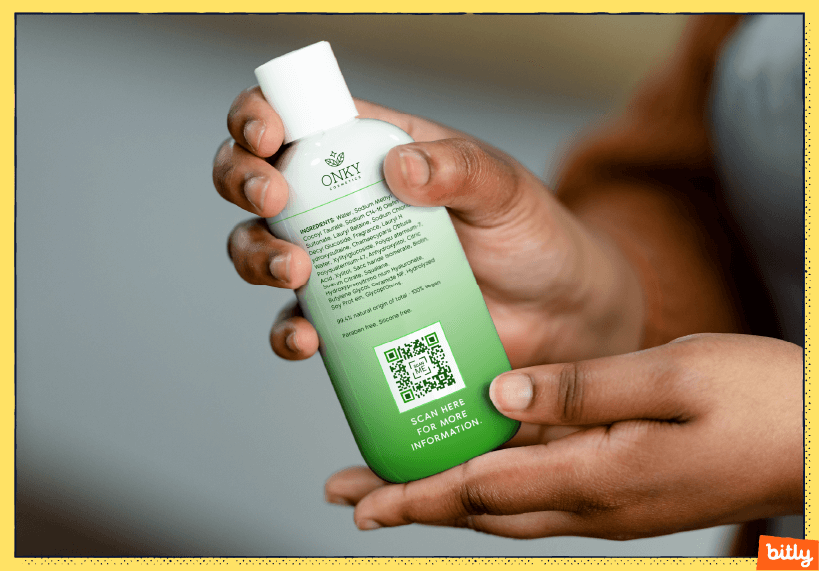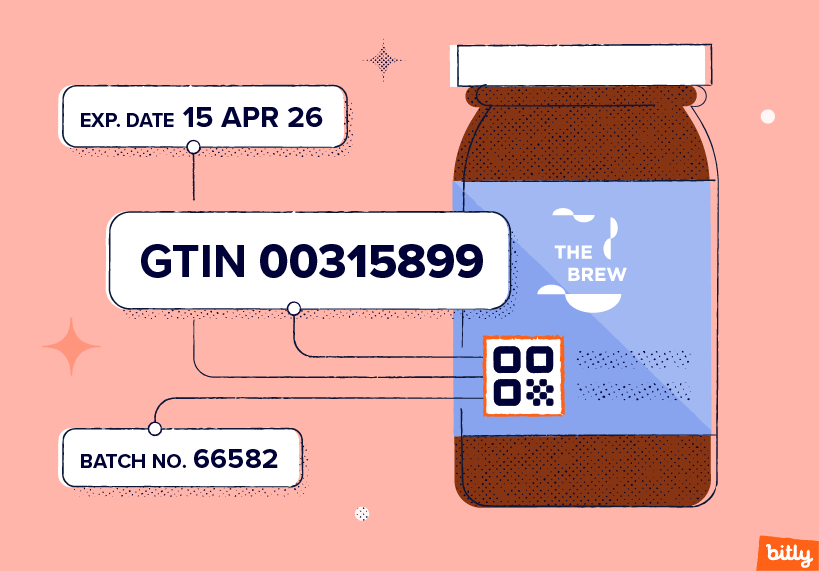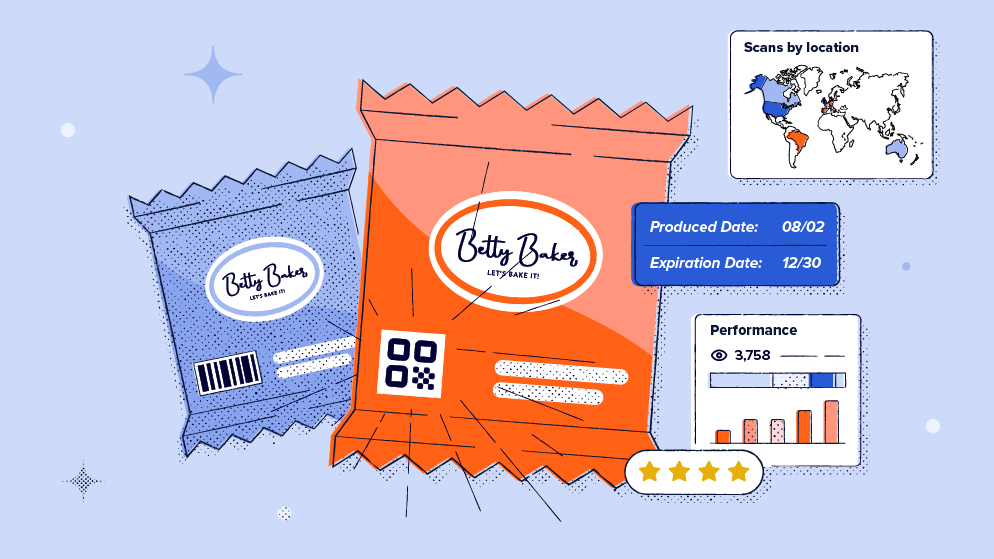The call for greater access to product information continues to grow. Consumers want to know more about the items they buy, brands want to learn more about how their customers shop, and retailers want to know how to operate their stores more efficiently.
Easy access to product information helps businesses and consumers make more informed decisions. But up until recently, accessing a wealth of product information has been a challenge. For years, Barcodes have been sufficient for putting stock-keeping unit (SKU) numbers on products and looking at inventory. Still, 80% of retailers are not confident in their product data because of manual errors and the lack of trackability throughout the entire supply chain. This challenges the retail and CPG industry worldwide to determine how to make the barcode more reliable and store more data.
A traditional 1D barcode can only store 20 to 25 characters, over 200 times less than what a 2D Barcode is capable of. This is just one of many reasons that GS1, a nonprofit organization that sets industry standards for barcodes, plans to require all retailers to have the ability to scan a 2D Barcode by 2027.
What is a 2D Barcode?
2D Barcodes are scannable squares that can store far more information than a traditional barcode can. Businesses and brands can include the Global Trade Item Number (GTIN) in the code, expiration dates, landing pages, and more. This GTIN helps scan your product during checkout and keeps track of it in your supply chain. 2D Barcodes are the next generation of barcode technology, offering unprecedented data storage capacity and versatility. Unlike traditional 1D barcodes, 2D Barcodes can store a wealth of information, including text, images, and website URLs.
Why should you use a 2D Barcode?
In today’s fast-paced world, using a 2D Barcode is not just a smart move—it’s a necessity. The healthcare industry has already widely adopted the 2D Barcode to educate patients on medications and symptoms, and the retail and consumer packaged goods (CPG) industries are starting to see adoption of the 2D Barcode increase.
Puma, a global apparel company, was among the first to announce that they are using 2D Barcodes in their US stores and on products. They use 2D Barcodes on apparel and shoes to link to information about their sustainability efforts.
Brands and businesses that adopt 2D Barcodes early also have a competitive advantage—you can create unforgettable experiences for customers while the concept is still new. Imagine having detailed product descriptions, pricing, and website links at your fingertips with a simple scan. Plus, with the ability to scan from any angle, 2D Barcodes are more versatile and efficient than traditional barcodes.
By incorporating 2D Barcodes into your business, you’ll streamline your operations, improve inventory management, and provide a better experience for your customers. Don’t get left behind—switch to our GS1-compliant 2D Barcodes today.
What can you do with a 2D Barcode?
2D Barcodes can be used to share everything from sustainability efforts to product information. However, the potential of 2D Barcodes goes far beyond these applications.
With Bitly’s 2D Barcodes, which contain a GS1 Digital Link, you can access where people are scanning geographically, which is critical information when planning marketing campaigns targeted to certain geographic areas. You can also help your customers make informed purchases by linking to information about sourcing, ingredients, and materials while being able to flag expiration dates to discount those items or remove them from shelves.
The possibilities are endless. With the rise of mobile devices and the increasing need for instant access to information, 2D Barcodes are quickly becoming necessary in many industries. They offer a convenient and efficient method for storing and accessing data, making them a valuable tool for any business.

For retail businesses
Imagine a consumer shopping at your grocery store picking up a shampoo brand they’re unfamiliar with. The consumer turns the product around to read more about it and sees a 2D Barcode saying, “Scan here for more information.”
They pull out their phone, scan the code, and are directed to a page that states where the shampoo was made, the best ways to use it, the ingredients in the shampoo, promotions, and even similar products they may like from your brand.
The consumer then takes that product to the register and uses that same 2D Barcode to purchase it.
This is one of the many experiences possible using Bitly’s brand-new GS1-compliant 2D Barcodes. 2D Barcodes are the future of product data storage, offering a powerful and versatile solution for tracking and managing information. We expect to see even more innovative and exciting applications as this technology evolves.

For manufacturers
As a manufacturer or distributor, data is of critical importance. Did you know that when warehouse packers inaccurately pick products, this can cost businesses over $390,000 annually? It’s not all because of the 1D barcode, but it has significantly added to this cost. The 2D Barcode will limit packing mistakes, inventory management issues, and inconsistent data.
For example, if you place a 2D Barcode on your products, you will have access to the GTIN, batch numbers, product expiration dates, unique product IDs, and more, all a simple scan away. The batch numbers, product expiration dates, and unique product IDs will be available at a later date with Bitly’s 2D Barcodes. In addition to the data you can put within a 2D Barcode, you can also scan the 2D Barcode horizontally, vertically, or anywhere in between, making scanning faster and tracking more effortless than ever.
How do I get started with Bitly 2D Barcodes?
The 2D Barcode is available via Bitly’s API and within the Bitly Connections Platform. Through the API, your company can create 2D Barcodes at scale. Similar to Bitly QR Codes, 2D Barcodes are customizable to reflect your brand’s look and feel.




